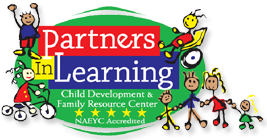I’m working with this a little fellow at one of our childcare centers here in Rowan County. When I first met him in September, he was struggling with behavior that was aggressive, deviant and his interactions with peers consistently resulted in his hitting, kicking, pushing and biting. He was unable to maintain interest in any toy or activity for more than a few seconds before throwing or trying to destroy it.
He was referred for services, and he’s now receiving speech therapy and a low-dose medication that has helped him be able to more fully participate in the classroom environment. His teachers have noticed the difference, but they asked me why is he still unable to interact effectively with his peers.
Well, there are a couple of factors that come into play. For one, during that period of time in his development when he was unable to self-regulate, he was also unable to develop the social-emotional skills that his peers were learning, so he is behind in this area of his development and will need additional support to catch up. In addition, he will continue to rely on the behaviors that he has previously learned, and if his learned misbehaviors continue to produce a positive outcome for him, it will be very difficult to teach replacement behaviors.
Isn’t human behavior interesting?
(The photos in this blog are of my grandson, Peter, whose behavior is generally quite acceptable.)
Katherine Generaux, Community Inclusion Specialist





No comments:
Post a Comment